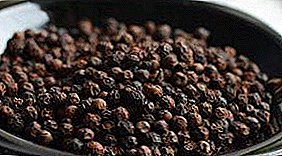 How to grow and harvest a rich harvest on your site and make yourself a greenhouse for cucumbers with your own hands - you can read in this article, where photos of various options are also presented for clarity (as an example for beginners).
How to grow and harvest a rich harvest on your site and make yourself a greenhouse for cucumbers with your own hands - you can read in this article, where photos of various options are also presented for clarity (as an example for beginners).
Greenhouse requirements for cucumbers
In order to properly organize your work in stages and make a greenhouse with your own hands from scrap materials, you first need to examine all the requirements that the future borage must meet:
- The implementation of the main function - the accumulation of heat.
- Mobility, ease of moving the mini-design around the site.
- In hot weather, the greenhouse shelter should be opened to prevent overheating of plants, and, on the contrary, to close at night.
- The design should be well ventilated, but not be in a draft.
- The location should allow you to conveniently loosen and water the soil.
- The site should be well lit and protected from the wind.
Did you know? The cucumber appeared in the culture more than 6 thousand years ago, and India and the foothills of the Himalayas are considered its homeland, it grows there still in their natural conditions.

Where is the best place to put the structure
Choosing a place to put shelter for cucumbers is actually not that easy, but it’s quite realistic.
The main thing is to take into account the factors of greenhouse location relative to the cardinal points and wind direction. The most important location criteria in this process are as follows:
- The direction of the light. Lighting should be more than good, the germination of plants will depend on it. A clear orientation towards the cardinal points is required. The construction should not be blocked by houses, trees and other structures.
- In the selected area should be high quality soil.
- Of great importance is the convenience of accommodation - the presence of the entrance, free entry, posting the necessary communications and ease of maintenance.
- The slope of the site, the groundwater level and the ability of the soil to freeze.
Important! If you choose the wrong place for a future design, then it is quite possible to get problems such as inconsistency, poor microclimate, inconsistency in temperature and the wrong level of humidity, ultimately - poor and poor quality crop.

Simple greenhouse do it yourself
For one and a half or even in one day, it is possible to build a greenhouse suitable for green and pimply vegetables, the main thing in this business is desire and diligence.
What is needed
Initially, let's see what materials we need for the manufacture of borage with their own hands:
- hula hoop (hoop);
- boards;
- oilcloth film 1 or 2 pieces;
- drill;
- stapler

Instructions for making
It is quite simple to make a shelter, the process itself is divided into just a few small steps:
- The prepared hula-hoop is sawn in half.
- A small rectangular structure is made from 4 boards in a place chosen by all the rules.
- Then, in 2 planks parallel to each other (those that are smaller), holes are drilled at the ends so that the hula hoop halves can be easily inserted there.
- After fixing the plastic wrap into the boards, the film is stretched over the whole structure, which can be easily attached with a conventional stapler around the entire circumference from two sides.
Important! In order not to sag, the thin wooden stick should be attached to the top in the center of the structure.
Even novice vegetable growers and gardeners can easily make simple greenhouses with their own hands, especially if you follow all the above rules, and you can also see this detailed video instruction for a good example and make borage the easiest and most convenient to use:
Other manufacturing options
Undoubtedly, the home-made borage recommended in this article can claim to be the best because of its ease of manufacture and convenient operation. By the way, among gardeners, he bears the name "Film Greenhouse".
But there are also other options for making cucumber greenhouses, they would also be worth paying attention to:
1. "Greenhouse butterfly". It consists of a box that is somewhat similar to a house with a gable roof, the doors of which can easily be opened. As in the case of the film, "greenhouse butterfly" is quite easy to assemble on their own.
First you need to choose the necessary material for the base and frame, it can be any wooden boards. It is better to place this construction on a base from a bar - this will prevent rotting in its lower part.  Before installing itself, remove a small layer of earth and replace it with a 10 cm layer of fine gravel to create drainage.
Before installing itself, remove a small layer of earth and replace it with a 10 cm layer of fine gravel to create drainage.
Then insert the acquired window glass into the frame and fix it well with the overlays, and process the frame with a compound that prevents rotting of the wood used.
2. Recently, polycarbonate shelters are gaining popularity, which is a synthetic material and is used for numerous agricultural and horticultural needs. The advantage of this borage is the material's resistance to snow and hail, as well as its ability to cool slowly.
You can make it at home just like a greenhouse butterfly, but instead of glass you can use the polycarbonate material itself. 
Did you know? The very first greenhouses appeared in ancient Rome. Their appearance is radically different from today's options. - they looked like ordinary houses. Roman gardeners first planted plants in wheeled carts, in the afternoon they left their in the sun, and at night cleaned and stored in warm rooms.
Features of construction for short-term or permanent cultivation
Features of the construction for short-term or permanent cultivation of cucumbers may be in the following details:
- Homemade film house is suitable only for short periods, that is, for 1 season.
But this is understandable, because the fragile polyethylene can easily break the strong wind, not to mention the frost, which will easily destroy the plants under such poor-quality shelter.
But the construction of polycarbonate is very reliable in its long-term use (more than 2 years) and is suitable for growing even in a particularly snowy winter period.
 The main thing is to choose the right polycarbonate: its optimum thickness should be at least 6 mm, since in the case of the 4-millimeter version the coating will easily beat the hail. In addition, in such a greenhouse you can safely organize the necessary heating, as in any greenhouse.
The main thing is to choose the right polycarbonate: its optimum thickness should be at least 6 mm, since in the case of the 4-millimeter version the coating will easily beat the hail. In addition, in such a greenhouse you can safely organize the necessary heating, as in any greenhouse.Read also about how to make a greenhouse with your own hands.
The glass also has many advantages, both in the warm and cold season. In particular, it is the transparency and chemical inertness of the cucumber shelter, because film and polycarbonate materials at a high temperature can emit quite harmful substances, including foul-smelling, which, when accumulated, can also harm planted cucumbers.The glass house also has a disadvantage: it weighs much more than the other shelters, but, unlike the film house, it will not be torn down during strong windy weather.
You should also pay attention to the fragility of the glass and high thermal conductivity, because of which the crop can ripen several days or weeks later than in other self-made installations.

Proceeding from the above, it should be noted that self-made buildings, whatever material they have, have their advantages and disadvantages, therefore each owner must create a shelter based on personal preferences - the main thing is to first decide on what period exactly future borage.
Today you learned how to make a good greenhouse for cucumbers with your own hands, as well as a lot of interesting details regarding the features of the placement of such structures and materials.
Therefore, armed with the necessary tools, you can easily realize the planned construction in life and get a high-quality harvest of tasty and ripe cucumbers.


 The main thing is to choose the right polycarbonate: its optimum thickness should be at least 6 mm, since in the case of the 4-millimeter version the coating will easily beat the hail. In addition, in such a greenhouse you can safely organize the necessary heating, as in any greenhouse.
The main thing is to choose the right polycarbonate: its optimum thickness should be at least 6 mm, since in the case of the 4-millimeter version the coating will easily beat the hail. In addition, in such a greenhouse you can safely organize the necessary heating, as in any greenhouse.









